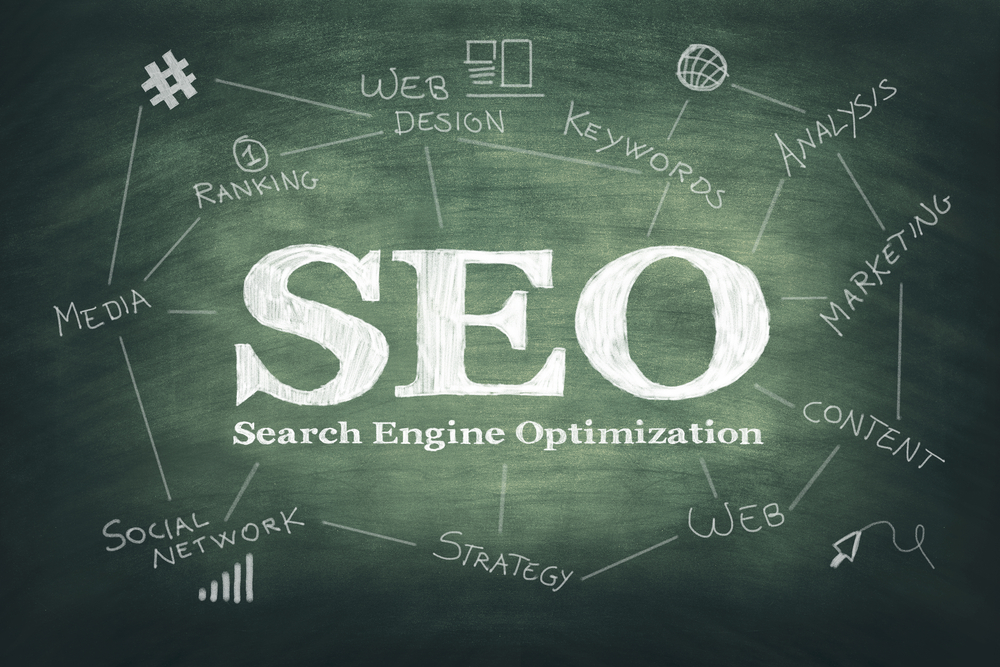
Boost Your Website's Ranking: Expert SEO and Link Building Tips

In today's digital age, having a strong online presence is essential for businesses of all sizes. One of the key components of a successful online presence is Search Engine Optimization ( SEO ). SEO (search engine optimization) is the practice of improving your website's visibility and ranking on search engine results pages (SERPs). While optimizing your website for search engines may seem like a daunting task, there are many expert SEO (or SEM) and link building tips that can help boost your website's ranking. In this article, we will explore some of these tips and strategies.
1. Create High-Quality and Relevant Content:One of the most important aspects of SEO/SEM is creating high-quality, relevant content. Search engines are constantly evolving, and their algorithms are becoming smarter at understanding the context and relevance of content. Therefore, it's crucial to produce content that provides value to your target audience and aligns with their needs and interests. By doing so, you'll attract more organic traffic and increase your chances of ranking higher on SERPs.
2. Optimize Your Website's On-Page Elements:
On-page optimization plays a significant role in improving your website's visibility. Ensure that your website's meta titles and descriptions include relevant keywords related to your content. Additionally, incorporate your target keywords in heading tags (H1, H2, etc.), image alt tags, and URL structures. Optimizing these elements helps search engines understand the context of your content and improves your chances of ranking for relevant searches.
3. Build High-Quality Backlinks:
Link building is an essential component of SEM/SEO and can significantly impact your website's ranking. When other reputable websites link back to your content, it signals to search engines that your website is trustworthy and authoritative. However, it's crucial to focus on quality rather than quantity. Aim for acquiring backlinks from relevant and authoritative websites within your industry. You can achieve this through techniques like guest blogging, influencer outreach, and creating valuable content that naturally attracts links.
4. Optimize Your Website's Speed:
Website speed is a critical factor in both user experience and SEO. Slow loading websites not only frustrate users but also have a negative impact on your search engine rankings. To improve your website's speed, optimize image sizes, leverage browser caching, and consider using content delivery networks (CDNs). Page speed optimization not only improves overall user experience but also helps search engines crawl and index your site more efficiently.
5. Mobile Optimization:
With the growing popularity of mobile devices, having a mobile-friendly website is no longer a choice but a necessity. Mobile optimization is a crucial element of SEO, as search engines prioritize mobile-friendly sites in their ranking algorithms. Ensure that your website is responsive and provides a seamless user experience across different devices. Pay attention to mobile page speed, design, and formatting to maximize your website's mobile visibility and boost your SEO efforts.
FAQs:
Q1: How long does it take to see results from SEO efforts?A1: SEO results vary depending on various factors such as the competitiveness of your industry, the quality of your website, and the effectiveness of your SEO strategies. Generally, it takes several months to start seeing noticeable improvements in your website's ranking and organic traffic.
Q2: Are there any shortcuts or quick fixes for SEO?
A2: No, SEO is a long-term strategy that requires consistent effort and dedication. While there are some shady tactics that might yield short-term gains, search engines like Google quickly catch on to such practices and penalize websites using them. So it's best to focus on ethical and sustainable SEO techniques.
Q3: How often should I update my website's content for SEO purposes?
A3: It's a good practice to update your website's content regularly, especially if it's time-sensitive or if you're covering rapidly evolving topics. However, the frequency of content updates may also depend on your industry and the nature of your content. Aim to provide fresh and valuable content to your audience consistently.
Q4: Can social media impact SEO?
A4: While social media platforms do not have a direct impact on your website's ranking, they play a significant role in increasing brand visibility, driving traffic, and building backlinks. When your content gets shared and linked on social media, it can indirectly contribute to your website's SEO efforts by improving its overall online presence.
Q5: Is it worth investing in paid SEO tools?
A5: Paid SEO tools can provide valuable insights and data to enhance your SEO strategies. However, they may not be necessary for everyone, especially if you're just starting or have a limited budget. Many free tools, such as Google Analytics and Google Search Console, offer powerful features and insights to optimize your website's performance.
Conclusion:
Boosting your website's ranking requires a combination of expert SEO knowledge, quality content, and effective link building strategies. By creating high-quality content, optimizing your website's on-page elements, building high-quality backlinks, optimizing website speed, and ensuring mobile optimization, you can greatly improve your website's visibility and ranking on search engine results pages. Remember that SEO is an ongoing effort, and staying up-to-date with the latest industry trends and algorithms is crucial to stay ahead of the competition.
Other useful resources
- https://www.seoguru24.com/services/link-building/
- https://www.seoguru24.com/listing-category/web-directory/